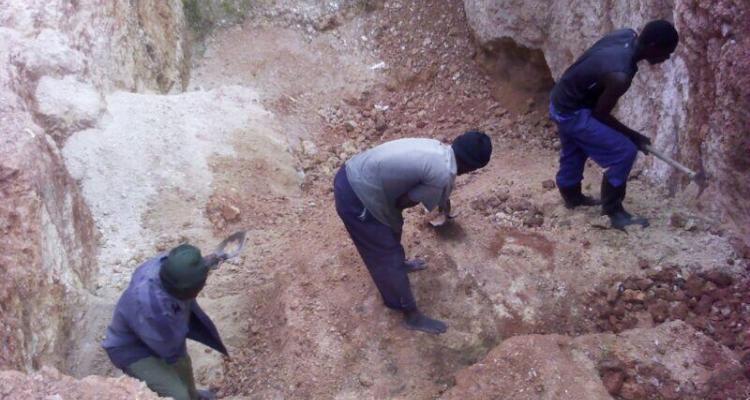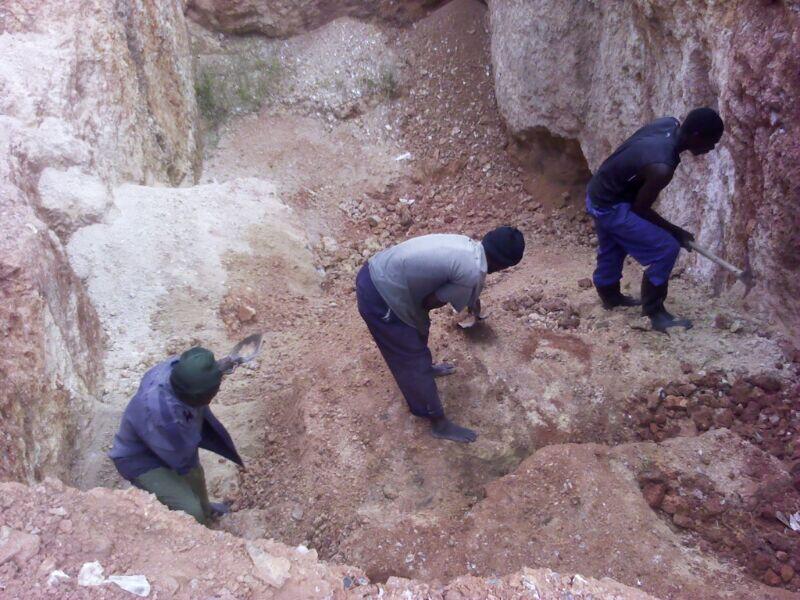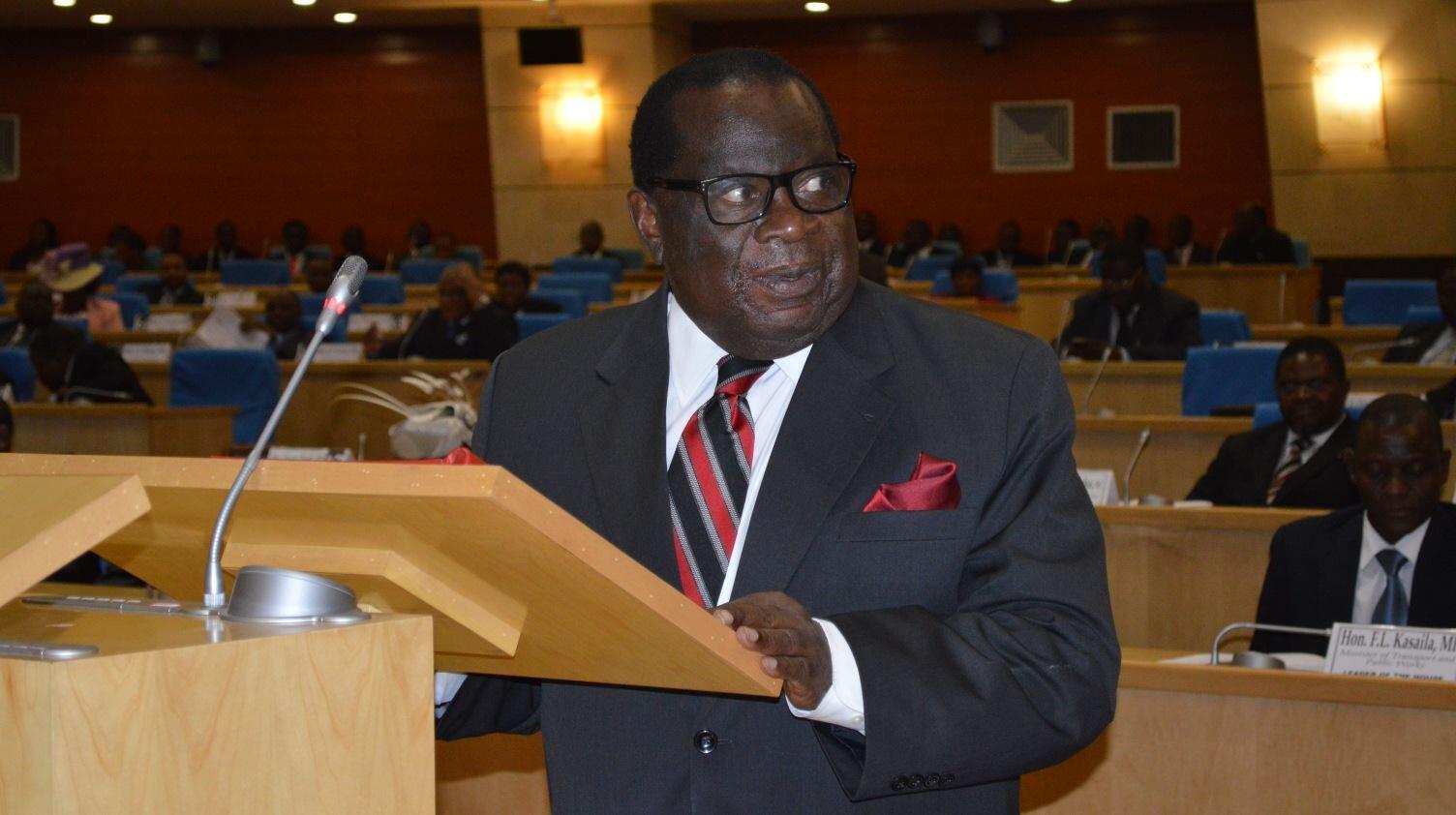
Malawi is struggling to address loss of revenues due to smuggling of minerals, unregulated artisanal and small-scale mining activities, under declaration of taxable income and transfer mispricing by mining companies.
Reserve Bank of Malawi statistics show that Malawi lost $980 million (MWK78 billion) between 2010 and 2017 due to foreign currency externalization, trade invoicing, transfer pricing, under declaration of taxable revenue.

“Governments should put in place measures to improve the mobilization of domestic resources and funds from the private sector to ensure adequate levels of development spending, stimulate growth and create job,” African Development Bank Senior Economist for southern Africa Stefan Muller said.
Muller recommends that countries such as Malawi must improve public revenue collection by broadening the tax base through, among other, measures by formalizing the informal business sector.
“And by also reforming and strengthening tax administrations and tax inspections to ensure tax compliance, reviewing and revising tax legislation to minimize or eliminate tax evasion, strengthening capacity in transfer pricing to reduce tax evasion and reduce tax exemptions and holidays,” Muller said.
For the period 2005 – 2014, Malawi’s illicit financial outflows were pegged at between 7 to 24 per cent of total trade while inflows can be understood as being at the level of four to seven percent, according to the Washington DC based Global Financial Integrity (GFI).
GFI also estimates that Malawi was robbed of between $2.26 billion (MWK1.6 trillion and $7.32 billion (MWK5.3 trillion) in the past 10 years due to illicit financial outflows.
The amount lost is more than Malawi’s entire 2017/18 national budget which was $ MWK1.3 trillion.
University of Massachusetts Professor of Economics Leone Ndikumana noted that the substantial losses of foreign exchange constitute a severe constraint to the ability of African countries to meet their financing development needs.
“It has been established that the majority of African countries missed most of the MGDs: their chances of reaching the SDGs are severely compromised if they are unable to tackle trade misinvoicing and the resultant capital flight,” said Ndikumana, who is also Director of the African Development Policy Programme.
The World Bank has predicted that Malawi’s economy to grow by 4.5 percent in 2018 from 4.4 percent in 2017 while the International Monetary Fund has predicted a five percent Gross Domestic Product growth in 2018 from 4.5 percent in 2017.
While the government has been dilly dallying to put measures to tap lost revenue, reports of rampant corruption in public procurement contracts for services and infrastructure continue to hound this southern African country.
Five years after Malawi’s donors closed the aid tap following the so-called Cashgate scandal, the country has been struggling to balance its books and effectively deliver services to its citizens.
Up to 40 percent of Malawi’s development budget is donor dependent. The absence of this component has raised the country’s domestic borrowing and put a huge strain on the economy.
The Cashgate scandal involved the disappearance of more than MWK35 billion ($48 million) during former President Joyce Banda’s two-year rule and another MWK156 billion ($214 million) that went missing during the eight-year reign of former president Bingu wa Mutharika.
The thievery saw Malawi’s public servants colluding with various contractors to siphon millions of dollars from government coffers.
As a result of the scandal, Malawi’s major donors suspended up to 40 percent of the country’s budgetary support in 2014. This forced the government to borrow heavily, locally, as a short-term measure to address the deficit.
The Peter Mutharika administration inherited local debt-payment arrears amounting to MWK154 billion ($212 million) when it assumed office in May 2014.
For the past 10 years Malawi’s debt has more than doubled and stands at 54.3 percent of GDP; in 2007 it was 26.7 percent.
Now the government is contemplating extending the obligation to pay tax to include the informal sector, as one way of mitigating the effects of the donor funding freeze.
Malawi’s informal economy covers a multiplicity of activities and different types of work. Included in this sector are the self-employed, casual workers without fixed employment, street vendors, hawkers and people in the agricultural sector.
“There is need for a study to determine how much exactly is generated in the informal sector because people in this sector do not leave a paper trail and do not submit tax returns,” Malawi’s Independent Tax Expert Emmanuel Kaluluma said.
It also claims the move is intended as a blueprint for future budgetary sustainability.
However, Researchers Henrik Huitfeldt and Johannes Jutting cautions Malawi on its wholesome approach to extend the tax net saying they are four key drivers behind the contemporary expansion of informality.
They cite: slow employment growth in the formal sector economy, the restructuring of labor under liberalization and globalization, inappropriate formal sector regulations and competitive pressures to reduce cost.
“Similarly, the idea that the desire to evade taxes pushes people into the informal economy is weakened by the fact that the informal actors pay a range of formal as well as informal taxes.
“Local government taxes are often collected in the markets where informal actors operate or by sending revenue officers physically to other places of informal activity making evasion difficult,” they noted.
The Malawi Revenue Authority (MRA), the country’s tax collector, has been both a liability and a disappointment in terms of revenue injections to the national coffers.
MRA has over the years struggled to meet collection targets set by government because of what it described as a “sluggish economy”.
At the end of the first half of 2017/18, under collection of revenue by the MRA amounted to MWK45.9 billion ($63 million) of which MWK38.1 billion ($52 million) was tax under collection and MWK7.8 billion ($11 million) was the non-tax revenue under collection.
MRA gives no other reasons as to why it failed to collect the projected revenues other than to say that it is optimistic about meeting its targets.

Minister of Finance Goodall Gondwe admitted in his mid-year 2017-2018 budget review presentation to the national assembly in February this year that Malawi is struggling to tap domestic revenue.
“It is believed that with a number of economic measures that will eliminate power outages, tax collection will be normalized in the second half of 2017/18,” Gondwe said.
But Mining and Environmental Management Expert Grain Malunga attributes Malawi’s loss of revenue to the proliferation of Artisanal Small-scale Miners saying the sector is not formalized and regulated hence does not remit tax to government.
“The market for their products is also not formalized and the vendors take advantage of this by buying their unprocessed stones at low prices to sell them at a huge profit margins in foreign markets,” Malunga told Mining & Trade Review.
Secretary General for Gemstone Association of Malawi (GAM), Ian Petros Mbewe, agreed with Malunga saying the government needed to move with haste to formalize the ASM sector to ensure that only licensed miners practice.
“This will assist government to collect taxes, regulate the sector and also equip it with technical and business skills so that they are not duped by foreign buyers,” Mbewe said
Quadria Muslim Association of Malawi (QMAM) Project Officer for Extractives Biswas Ismael agrees with both Malunga and Mbewe attributing the continued loss of revenue to the country’s lack of powerful legislation to manage a modern mining sector.
The country’s Mines and Minerals Act was enacted in 1981 under the country’s first post-independence president, Hastings Kamuzu Banda, long before the country mapped any of its mineral resources. The law gives the country’s president ownership of all mineral resources.
The law also allows foreign companies to repatriate dividends, profits and royalties. Firms are absolved from paying customs and excise duties as well as value-added taxes for mining and plant equipment.
Investors can enjoy a 100 percent tax reduction in the first year of assessment with generous allowances in the following years. The law also lacks local content provisions requiring the hiring of Malawians or the purchase of supplies originating in the country.
The fiscal regime associated with mining investment was enacted by Parliament in 2016 and provides a long-term stability period to accommodate long term payback period associated with mining investment.
The provisions in this fiscal regime will become effective once the new Mines and Minerals Bill is enacted by parliament. Issues of benefit sharing and community engaged have also been addressed.
Government preliminary projections show that the mining receipts could rake in as much as 20 percent of the Gross Domestic Product (GDP), which is about $320m.
However, Malawi government attempts to tap domestic revenue and stop illicit financial flows has stalled due to a heated turf battle on the launch of a vital government project known as ‘operation kuluma aimed at investigating and prosecuting financial crimes in Malawi.
One consequence of the delay in ‘Operation Kuluma’ is that a planned crackdown on the fraudulent externalization of foreign exchange has suffered a setback.
Operation Kuluma had targeted 13 Indian-owned companies among others which had allegedly externalized $4-million in eight separate transactions.
The individuals concerned had been charged and the Director of Public Prosecutions, Mary Kachale, had certified in certificates filed in the Malawi High Court under the Criminal Procedure and Evidence Code that the cases were suitable for summary trial.
Broadly, the offences involved the making and use of false documents and deceptions by persons applying for permission to remit large sums of foreign currency abroad.
Documents seen by the Centre for Investigative Journalism Malawi (CIJM), indicates that the Reserve Bank of Malawi, the Malawi Revenue Authority, the Anti-Corruption Bureau, the Financial Intelligence Authority (FIA) and the Malawi Police Service have been unable to append their signatures to a memorandum of understanding that will kick-start the operation Kuluma.
“There was a memorandum of understanding which was signed around 2010/2011. It is currently being reviewed to ensure that it addresses the current challenges. The Anti-Corruption Bureau values working in collaboration with other agencies as that contributes to its effectiveness. It is ready to sign the MoU as soon as the document is ready,” ACB Senior Public relations Officer Egrita Ndala said in a written response.
The memo relates to the investigation and prosecution of offences under the Money Laundering, Proceeds of Serious Crime and Terrorist Financing Act, the Exchange Control Act; the Customs and Excise Act; and the Penal Code of Malawi. A key sticking-point is a planned review of the money laundering law.
The memo also revealed that at a meeting on October 24-26 2015, officials from the Reserve Bank, the FIA and the finance and justice ministries could not agree on how to demarcate the supervisory roles of the FIA and the Registrar of Financial Institutions.
“There was further no consensus on whether the Registrar of Financial Institutions should have powers to issue freezing directives against accounts suspected to have been involved in financial crimes and on the need to criminalise operating fictitious/ghost accounts, since there is no law that criminalises the opening and operation of fictitious accounts,” reads part of the memo a copy CIJM obtained.
The memorandum of understanding recognizes “the damage done to the economy of Malawi by the depletion of its foreign currency reserves” and notes “the high probability that proceeds of crime have been laundered and sent out of the jurisdiction of Malawi’s courts”.
In terms of the memorandum, the signatories would agree to “co-ordinate, co-operate and collaborate at all stages of the investigations and prosecutions of the individuals and companies implicated in the criminality”.
While Malawi’s state agencies lock horns over the word of the memo, Malawi’s Central Bank Boss Dalitso Kabambe said $1.3 billion is locked in the informal sector compared to $500 million in the formal sector.
“What is all this money doing out there? Is it earning any interest?” Malawi’s flagship daily, The Daily Times quoted, Kabambe as saying.
The Wealth of Nations, (Reporting Illicit Finance in Africa), a Thomson Reuters Foundation Programme & The Centre for Investigative Journalism (CIJM) – http://investigative-malawi.com – supported this story.














